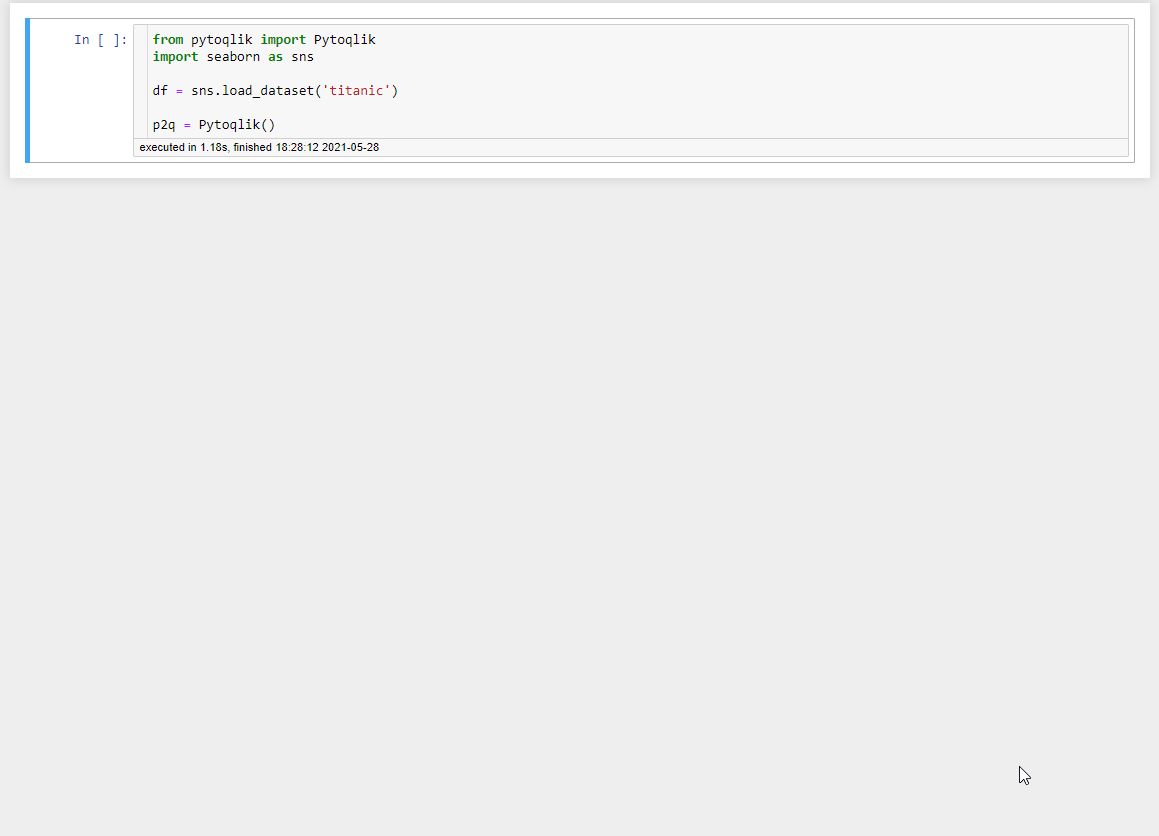PyToQlik is a library that allows you to integrate Qlik Desktop with Jupyter notebooks. With it you can:
- Open and edit a Qlik app inside a Jupyter notebook;
- Create a Qlik object with data from a pandas DataFrame data structure and/or;
- Import data from a Qlik object and create a pandas DataFrame to work with in Python.
🔥 Getting ready for our "v1.0" implementation. New fetchData function allows you to grab data filtered using Qlik's Associative Engine without the need to pass it in an object beforehand.
Major revamp in verbose results and class hierarchy. PyToQlik should be way more stable and reliable!
🌟 Just added Qlik Cloud SaaS support! 🌟
Be a more powerful 📊 data scientist by importing and extracting data from Qlik objects in Cloud applications inside your (:cloud:) tenant!
For this library to work you might want to have a functioning Qlik Desktop App installed and running on your local machine, or, if using the Cloud version, you will need an API Key to your tenant. There are tutorials on here and on Qlik's website about API Keys. You will also find having the pandas library useful, and either a Jupyter Notebook local server or use something like Google Colaboratory.
You can then download and install PyToQlik using:
Installation
pip install pytoqlik
Creating a Qlik app and feeding it data
from pytoqlik import Pytoqlik
import seaborn
df = seaborn.load_dataset('tips') # df is just some example data provided by the seaborn library
p2q = Pytoqlik()
app = p2q.toQlik(df)
Importing data from a Qlik object to Python
from pytoqlik import Pytoqlik
import seaborn
df = seaborn.load_dataset('tips') # df is just some example data provided by the seaborn library
p2q = Pytoqlik()
app = p2q.toQlik(df)
app.toPy('your ObjectID')
PyToQlik current documentation can be found HERE.
A case-study based tutorial has been developed and is available HERE.
- Qlik Enterprise authentication via .pem files
- Streamlined Qlik Cloud embedding in Colaboratory
- Object creation and manipulation via Python
- Task creation and managing

